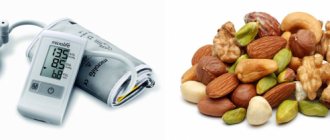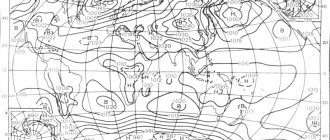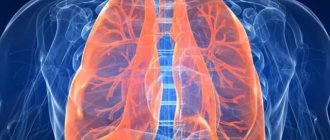Atmospheric pressure is considered normal within the range of 750-760 mm Hg. (millimeters of mercury). During the year it fluctuates within 30 mmHg. Art., and during the day - within 1-3 mm Hg. Art. A sharp change in atmospheric pressure often causes a deterioration in health in weather-sensitive people, and sometimes in healthy people.
If the weather changes, patients with hypertension also feel unwell. Let's consider how atmospheric pressure affects hypertensive and weather-sensitive people.
Weather dependent and healthy people
Healthy people do not feel any changes in the weather. People who are weather dependent experience the following symptoms:
- Dizziness;
- Drowsiness;
- Apathy, lethargy;
- Joint pain;
- Anxiety, fear;
- Gastrointestinal dysfunction;
- Fluctuations in blood pressure.
Often, health worsens in the fall, when there is an exacerbation of colds and chronic diseases. In the absence of any pathologies, meteosensitivity manifests itself as malaise.
Unlike healthy people, weather-dependent people react not only to fluctuations in atmospheric pressure, but also to increased humidity, sudden cold or warming. The reasons for this are often:
- Low physical activity;
- Presence of diseases;
- Decline of immunity;
- Deterioration of the central nervous system;
- Weak blood vessels;
- Age;
- Ecological situation;
- Climate.
As a result, the body's ability to quickly adapt to changes in weather conditions deteriorates.
Is weather sensitivity a disease of modern people?
Someone might think that the dependence of one’s well-being on weather conditions is the lot of modern people and that bad ecology or frequent stress is to blame. In fact, the reasons are different. Let's say more, even in ancient times, people noticed that changes in the weather affected their well-being.
Content:
- Is weather sensitivity a disease of modern people?
- Why do we react to the weather?
- Meteopathy and meteosensitivity: how to recognize
- Weather sensitivity index: how to determine
- Meteopathological syndromes
- Weather sensitivity in adults and children: who is at risk
- Weather factors affecting well-being
- Why is weather sensitivity dangerous?
- Treatment of weather dependence
Hippocrates mentioned weather dependence in his writings approximately 400 BC. The ancient Germans noticed that in damp, cold weather joint pain became more frequent and they called this condition nothing more than weather pain. And Tibetan doctors even believed that any illness was, to one degree or another, related to weather conditions. In later times, researchers assumed that even a change in wind direction could affect a person’s well-being, and constant alternations of warm and cold atmospheric fronts were called the main cause of illness.
High barometric pressure and hypertension
If the atmospheric pressure is high (above 760 mm Hg), there is no wind and precipitation, they speak of the onset of an anticyclone. There are no sudden temperature changes during this period. The amount of harmful impurities in the air increases.
Anticyclone has a negative effect on hypertensive patients. An increase in atmospheric pressure leads to an increase in blood pressure.
Performance decreases, pulsation and pain in the head, and heart pain appear. Other symptoms of the negative influence of the anticyclone:
- Increased heart rate;
- Weakness;
- Noise in ears;
- Facial redness;
- Flashing "flies" before the eyes.
The number of white blood cells in the blood decreases, which increases the risk of developing infections.
Elderly people with chronic cardiovascular diseases are especially susceptible to the effects of the anticyclone. With an increase in atmospheric pressure, the likelihood of a complication of hypertension - a crisis - increases, especially if the blood pressure rises to 220/120 mm Hg. Art. Other dangerous complications may develop (embolism, thrombosis, coma).
What to do
Maintain a normal blood pressure level and adjust it if necessary. First of all, you should measure it at least twice a day.
It is important to minimize the negative impact of weather conditions on the human body and maintain normal well-being.
This will help you a lot:
- good sound sleep;
- balanced diet;
- sports and exercises;
- walking in the fresh air.
Low atmospheric pressure
Low atmospheric pressure also has a bad effect on patients with hypertension - a cyclone. It is characterized by cloudy weather, precipitation, and high humidity. Air pressure drops below 750 mm Hg. Art.
The cyclone has the following effect on the body: breathing becomes more frequent, the pulse quickens, however, the force of the heart beat is reduced. Some people experience shortness of breath.
When air pressure is low, blood pressure also drops. Considering that hypertensive patients take medications to lower blood pressure, the cyclone has a bad effect on their well-being. The following symptoms appear:
- Dizziness;
- Drowsiness;
- Headache;
- Prostration.
In some cases, there is a deterioration in the functioning of the gastrointestinal tract.
Doctors' recommendations
When atmospheric pressure increases, patients with hypertension and weather-sensitive people should avoid active physical activity. We need to rest more. A low-calorie diet containing increased amounts of fruit is recommended.
If the anticyclone is accompanied by heat, it is also necessary to avoid physical activity. If possible, you should be in an air-conditioned room.
A low-calorie diet will be relevant. Increase the amount of potassium-rich foods in your diet.
To normalize blood pressure at low atmospheric pressure, doctors recommend increasing the volume of fluid consumed.
Drink water and infusions of medicinal herbs. It is necessary to reduce physical activity and rest more.
Sound sleep helps a lot. In the morning, you can have a cup of caffeinated drink. During the day you need to measure your blood pressure several times.
A sudden change in weather plunges almost 44% of Russians into confusion, according to doctors. It is known that mainly residents of megacities suffer from weather changes, however, in recent years, the disease has begun to affect the provinces as well. It is almost impossible to cure this form of weather dependence completely. But if you follow simple rules, you can significantly alleviate your condition on difficult weather days. People who feel discomfort from weather fluctuations, magnetic storms and solar activity are called weather dependent. In order for a person to feel comfortable, the atmospheric pressure must be 750 mmHg. With a noticeable change in this value, either down or up, the human body often feels a deterioration in well-being. Low atmospheric pressure has a stimulating effect on the sympathetic part of the autonomic nervous system, increases susceptibility to infectious diseases, suppresses mood and reduces ability to work. With low atmospheric pressure, blood pressure also decreases, which is especially dangerous in people with arterial hypotension; attacks of weakness and nervousness occur, and drowsiness appears. High atmospheric pressure increases the activity of the parasympathetic part of the autonomic nervous system. When barometric pressure is high, blood pressure rises, and people with hypertension are more likely to develop hypertensive crises. With both types of changes in atmospheric pressure, the likelihood of developing ischemic attacks from the cerebral, coronary and other vessels increases. Those who have suffered a stroke and myocardial infarction, and people with metabolic disorders, such as obesity and diabetes, react especially hard to changes in atmospheric pressure. General rules: Try to get as much sleep as possible. Moreover, it is more important to go to bed earlier, and not to get up later. The normal amount of sleep during weather changes is at least 9.5 hours. In order to ensure healthy and deep sleep with a normal alternation of phases, try drinking herbal tea with mint and chamomile at night. When you wake up, do not get out of bed abruptly - lie down, then sit in bed, massage your feet and legs, and only then get up. In the morning, to gently cheer yourself up, try doing short and easy exercises - stretch, work your hands and feet. This exercise will help the blood vessels gain tone. Avoid exercises that require balance, and avoid bending or squatting. After charging, take a shower - a contrast shower is better, but if this is too extreme for you, then a regular one will do. Stock up on a good B complex of vitamins and take them during weather changes: they will support the nervous system. During the day, try not to overload your stomach with heavy foods; it is better to eat often and in small portions. If your work involves sitting in front of a monitor for many hours, take a 5-minute break every 40 minutes for short gymnastics, changing positions and self-massage of the temporal, cervical-collar area, and forehead. Avoid stress, demanding events and strenuous activities on days when the barometric pressure changes too quickly. If you are involved in fitness, then it is better to cancel strength training, or replace it with calm swimming in the pool. Remember to drink plenty of plain water or fruit juices diluted half and half with water. If you experience sudden changes in blood pressure, try to rest in a horizontal position several times during the day. If you are prone to low blood pressure, feel free to drink hot sweet tea: it will restore your tone. The most important thing on difficult days from a weather point of view is not to miss dangerous symptoms that may indicate serious health problems: • Unpleasant sensations in the chest area, of unknown origin, radiating to the shoulder (especially to the left), under the shoulder blade or to the navel area . • Sudden loss of sensation in the limbs. • Feeling of numbness in half of the face. • Speech difficulties. • Attacks of nausea. • Visual impairment (flickering of spots before the eyes, out of focus). • Difficulty breathing. If you find yourself with at least one of the listed symptoms, immediately contact a doctor, preferably an ambulance. Changes in atmospheric pressure have different effects on the well-being of different people. In a healthy person, when atmospheric pressure changes, physiological processes in the body are timely adjusted to the changed environmental conditions. As a result, the protective reaction is enhanced, and healthy people practically do not feel its negative impact. In a sick person, adaptive reactions are weakened, so the body loses the ability to quickly adapt. At the same time, training and hardening the body play an important role in prevention. It is necessary to play sports, systematically perform one or another physical work. Food at low atmospheric pressure should be high-calorie, varied and rich in vitamins and mineral salts. GBUZ "Center for Medical Prevention" of the Ministry of Health of the Krasnodar Territory.
Effect of pressure and temperature changes
Changes in air temperature can also cause many health problems for hypertensive patients. During the period of an anticyclone, combined with heat, the risk of cerebral hemorrhages and heart damage increases significantly.
Due to high temperatures and high humidity, the oxygen content in the air decreases. This weather has a particularly bad effect on older people.
The dependence of blood pressure on atmospheric pressure is not so strong when heat is combined with low humidity and normal or slightly increased air pressure. However, in some cases, such weather conditions cause blood thickening. This increases the risk of blood clots and the development of heart attacks and strokes.
The well-being of hypertensive patients will worsen if the atmospheric pressure rises simultaneously with a sharp decrease in ambient temperature. With high humidity and strong wind, hypothermia (hypothermia) develops. Excitation of the sympathetic nervous system causes a decrease in heat transfer and an increase in heat production.
The reduction in heat transfer is caused by a decrease in body temperature due to vasospasm.
The process helps to increase the body's thermal resistance. To protect the extremities and facial skin from hypothermia, the blood vessels located in these parts of the body narrow.
If the cooling of the body is very sharp, persistent vascular spasm develops. This may cause an increase in blood pressure. In addition, a sharp cold snap changes the composition of the blood, in particular, the number of protective proteins is reduced.
Why is weather sensitivity dangerous?
Weather sensitivity is not such a harmless disorder as one might assume. Under the influence of the vagaries of the weather, different systems of the body suffer.
Immunity. Frequent changes in climatic conditions lead to the fact that the immune system is depleted, as it works in enhanced mode for a long time. As a result, a person gets sick easier and more often.
The cardiovascular system. Sudden changes in weather conditions cause the release of stress hormones, which provoke blood thickening, which creates additional risks for people with cardiovascular diseases, metabolic syndrome, diabetes, and vegetative-vascular dystonia. Therefore, people at risk should take blood thinners on the day the weather changes and a day earlier (but only as prescribed by a doctor).
Endocrine system. A sudden change in weather is stressful for the entire body, including the endocrine system. In particular, as for the pancreas, an unstable weather situation is one of the reasons for its depletion, and, therefore, a disruption in insulin production. The result is increased blood sugar and a tendency to develop diabetes. That is why, in adverse weather conditions, it is advisable for even healthy people to control their blood sugar levels. And people with diabetes must do this.
Change in atmospheric pressure with altitude
Above sea level
As you know, the higher you are from sea level, the lower the air density and the lower the atmospheric pressure. At an altitude of 5 km it decreases by about 2 r.
The influence of air pressure on the blood pressure of a person located high above sea level (for example, in the mountains) is manifested by the following symptoms:
- Increased breathing;
- Heart rate acceleration;
- Headache;
- Attack of suffocation;
- Nosebleeds.
The negative impact of low air pressure is based on oxygen starvation, when the body receives less oxygen. Subsequently, adaptation occurs, and health becomes normal.
A person who permanently lives in such an area does not feel the effects of low atmospheric pressure. You should know that in hypertensive patients, when rising to altitude (for example, during flights), blood pressure may change sharply, which threatens loss of consciousness.
Underground
Underground and water air pressure is increased. Its effect on blood pressure is directly proportional to the distance to which it must be descended.
The following symptoms appear: breathing becomes deep and rare, heart rate decreases, but only slightly. The skin becomes slightly numb, the mucous membranes become dry.
The body of a hypertensive person, like that of an ordinary person, adapts better to changes in atmospheric pressure if they occur slowly.
Much more severe symptoms develop due to a sharp change: increase (compression) and decrease (decompression). Miners and divers work in conditions of high atmospheric pressure.
They descend and rise underground (underwater) through sluices, where the pressure increases/decreases gradually. At increased atmospheric pressure, gases contained in the air dissolve in the blood. This process is called "saturation". During decompression, they leave the blood (desaturation).
If a person descends to a great depth underground or under water in violation of the venting regime, the body will become oversaturated with nitrogen. Caisson disease will develop, in which gas bubbles penetrate into the vessels, causing multiple embolisms.
The first symptoms of the pathology of the disease are muscle and joint pain. In severe cases, the eardrums burst, dizziness occurs, and labyrinthine nystagmus develops. Caisson disease is sometimes fatal.
Meteopathological syndromes
In recent decades, many studies have been conducted with the participation of people with increased weather sensitivity. This allowed specialists to identify some typical symptoms of dependence on the weather situation. Researchers call them meteorological syndromes or symptom complexes. In different people, the syndromes can appear either individually or in combination with other symptoms.
Today, patients most often experience the following meteopathological symptom complexes:
- rheumatoid (fatigue, general weakness and fatigue, various inflammatory reactions, pain);
- cerebral (irritability, general excitability, headaches, sleep disturbance, respiratory dysfunction);
- vegetative-vascular (blood pressure surges, autonomic disorders);
- cardiorespiratory (cough, increased respiratory rate, increased heart rate);
- dyspeptic (unpleasant sensations in the stomach, intestines and/or under the right ribs, nausea, lack of appetite, stool disturbance);
- immunological (impaired protective reactions of the body, tendency to colds and fungal diseases);
- skin-allergic (skin rashes, itching and other reactions typical of allergies);
- hemorrhagic (bleeding rashes on the skin, bleeding of mucous membranes, rushes of blood to the head, nosebleeds, increased blood supply to the conjunctiva, changes in the blood formula).
Sometimes, if the body’s reactions to certain meteorological factors are very pronounced and are repeated quite often, they speak of the development of a general adaptation-meteotropic syndrome. In this case, the balance of the whole organism is disturbed. Problems arise in the field of metabolism and energy metabolism, enzymatic activity, tissue structure and blood formula change.
Meteopathy
Meteopathy is the body's negative reaction to weather changes. Symptoms range from mild malaise to severe myocardial dysfunction, which can cause irreversible tissue damage.
The intensity and duration of manifestations of meteoropathy depend on age, body composition, and the presence of chronic diseases.
For some, the ailments continue for up to 7 days. According to medical statistics, 70% of people with chronic illnesses and 20% of healthy people have meteopathy.
The reaction to weather changes depends on the degree of sensitivity of the body. The first (initial) stage (or meteosensitivity) is characterized by a slight deterioration in well-being, which is not confirmed by clinical studies.
The second degree is called meteodependence, it is accompanied by changes in blood pressure and heart rate. Meteopathy is the most severe third degree.
With hypertension combined with weather dependence, the cause of deterioration in well-being can be not only fluctuations in atmospheric pressure, but also other environmental changes. Such patients need to pay attention to weather conditions and weather forecasts.
This will allow you to take the measures recommended by your doctor in a timely manner.
At-risk groups
This group mainly includes people with chronic diseases and the elderly with age-related health changes. The risk of weather dependence increases in the presence of the following pathologies:
- Respiratory diseases (pulmonary hypertension, chronic obstructive pulmonary disease, bronchial asthma). Severe exacerbations occur.
- Damage to the central nervous system (stroke). There is a high risk of recurrent brain damage.
- Arterial hypertension or hypotension . A hypertensive crisis with the development of myocardial infarction and stroke is possible.
- Vascular diseases (atherosclerosis of the arteries). Atherosclerotic plaques can break away from the walls, causing thrombosis and thromboembolism.









